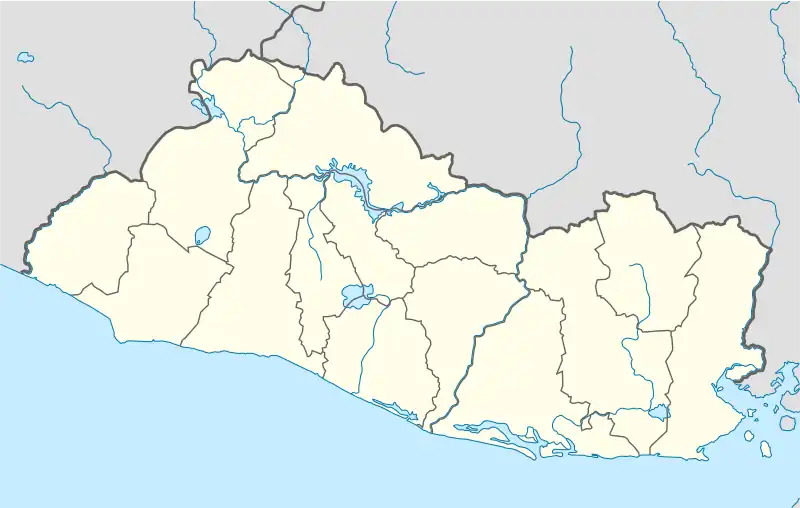| Battle of Ilopango Airport | |||||||
|---|---|---|---|---|---|---|---|
| Part of the 1981 Final Offensive of the Salvadoran Civil War | |||||||
| |||||||
| Belligerents | |||||||
|
|
| ||||||
| Strength | |||||||
| Unknown | Unknown | ||||||
| Casualties and losses | |||||||
|
Unknown killed 14 helicopters destroyed 8 aircraft destroyed | Unknown killed | ||||||
 Ilopango Airport Location in El Salvador | |||||||
The Battle of Ilopango Airport was a military engagement fought at the Ilopango International Airport in El Salvador in late January 1981. The battle was a part of the Salvadoran Civil War. It was fought between soldiers of the Salvadoran Air Force and guerrillas of the Farabundo Martí National Liberation Front.
Background
On October 15, 1979, the Salvadoran Civil War began with a coup being staged against the President, Carlos Humberto Romero. After the coup, the Revolutionary Government Junta of El Salvador was established and in 1980, the Farabundo Martí National Liberation Front engaged in a guerrilla war against the government.[1][2][3][4]
Battle
In late January 1981, FMLN guerrillas launched the Final Offensive. As a part of the offensive, the FMLN attacked the Ilopango International Airport which was recently converted into a Salvadoran Air Force base with the opening of the Comalapa International Airport in January 1980.[5] The guerrillas primary goal was to damage infrastructure as to hamper the efforts of the government in stopping the FMLN. As a result, aircraft and helicopters were the primary target of the attack.
The Air Force retained control of the airport and the FMLN retreated but the Air Force lost 14 UH-1H helicopters, 5 Dassault Ouragans, and 3 C-47s.[5]
Aftermath
The attack on the Ilopango Airport was one of 439 acts of sabotage carried out by the FMLN during the Final Offensive from January to September 1981. The United States estimated the total damages cost $98 million[5]
As a direct result of the attack, newly inaugurated US President Ronald Reagan called the FMLN attacks a "communist plot" and signed an executive order on February 1 authorizing $55 million in emergency military aid to be sent to the government of El Salvador.[5][6]
References
- ↑ Pastor, Robert (1984). "Continuity and Change in U.S. Foreign Policy: Carter and Reagan on El Salvador". Journal of Policy Analysis and Management. Association for Public Policy Analysis and Management. 3 (2): 170–190. doi:10.2307/3323931. JSTOR 3323931.
- ↑ "El coronel Adolfo Majano, desplazado del control del ejército salvadoreño Jaime Abdul Gutiérrez representará a las fuerzas armadas en la Junta de Gobierno". El País. 14 May 1980.
- ↑ "La tormentosa fuga del juez Atilio". 15 September 2008. Retrieved 25 January 2020.
- ↑ Wood, Elisabeth (2003). Insurgent Collective Action and Civil War. Cambridge Studies in Comparative Politics. pp. 1–4, 14–15. ISBN 0521010500.
- 1 2 3 4 Belisario Betancur and Thomas Buergenthal (26 January 2001). "From Madness to Hope: the 12-year war in El Salvador: Report of the Commission on the Truth for El Salvador". The Commission on the Truth for El Salvador. United States Institute of Peace.
- ↑ "United States calls situation in El Salvador a communist plot". 13 November 2009.